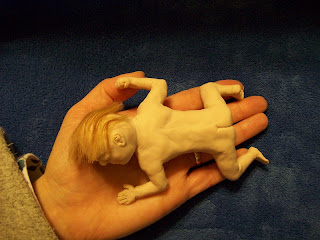Distaff Day, also called
Roc Day, is 7 January, the day after the feast of the Epiphany. It is also known as
Saint Distaff's Day, since it was not really a holiday at all. In many European cultural traditions, women resumed their household work after the twelve days of Christmas. The
distaff, or rock, used in spinning was the medieval symbol of women's work. Often the men and women would play pranks on each other during this day, as was written by Robert Herrick in his poem "Saint Distaffs day, or the Morrow After Twelfth Day" which appears in his
Hesperides.
http://en.wikipedia.org/wiki/Distaff_day
As a noun, a
distaff , also called a
rock is a tool used in spinning. It is designed to hold the unspun fibers, keeping them untangled and thus easing the spinning process. It is most commonly used to hold flax, and sometimes wool, but can be used for any type of fiber. Fiber is wrapped around the distaff, and tied in place with a piece of ribbon or string. The word comes from
dis in Low German, meaning a bunch of flax, connected with staff. As an adjective the term
distaff is used to describe the female side of a family.
http://en.wikipedia.org/wiki/Distaff





























































